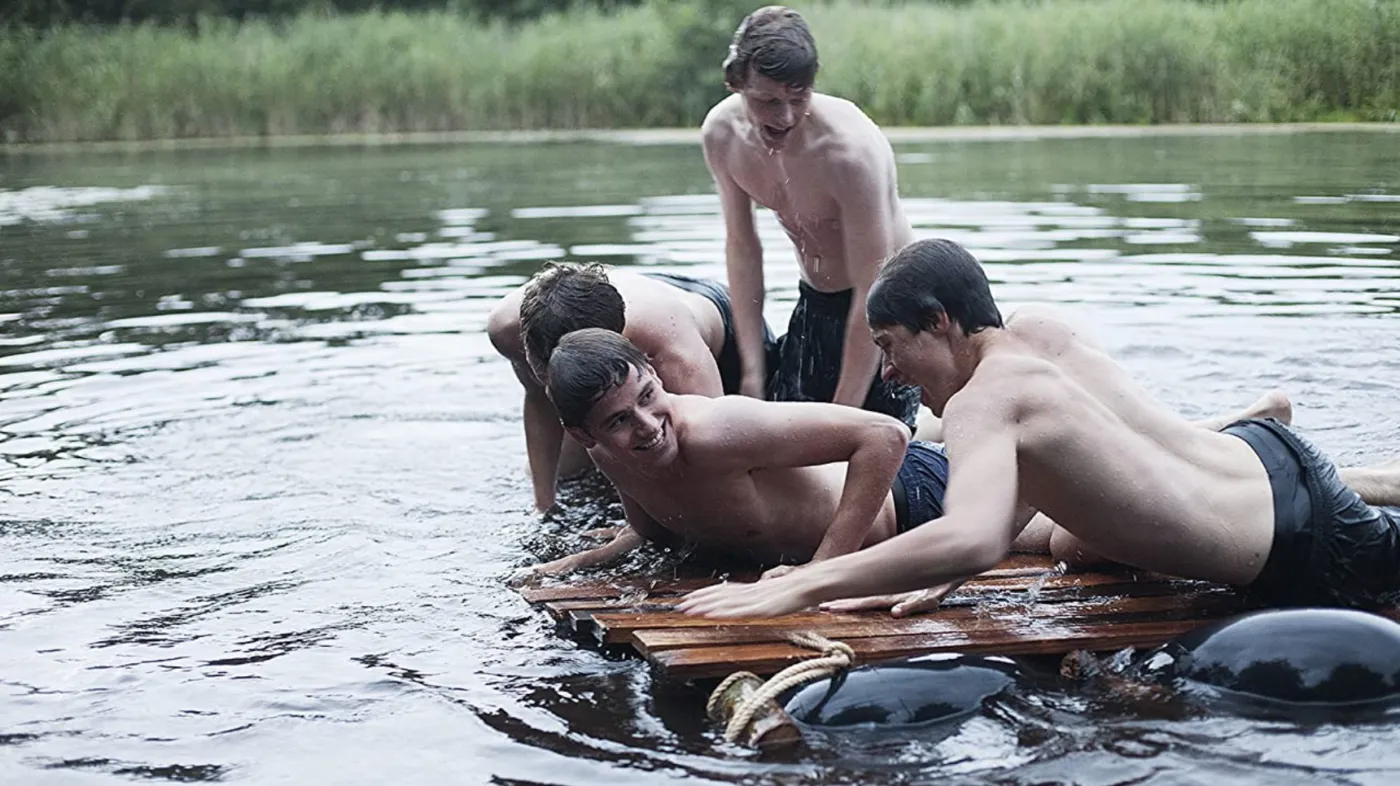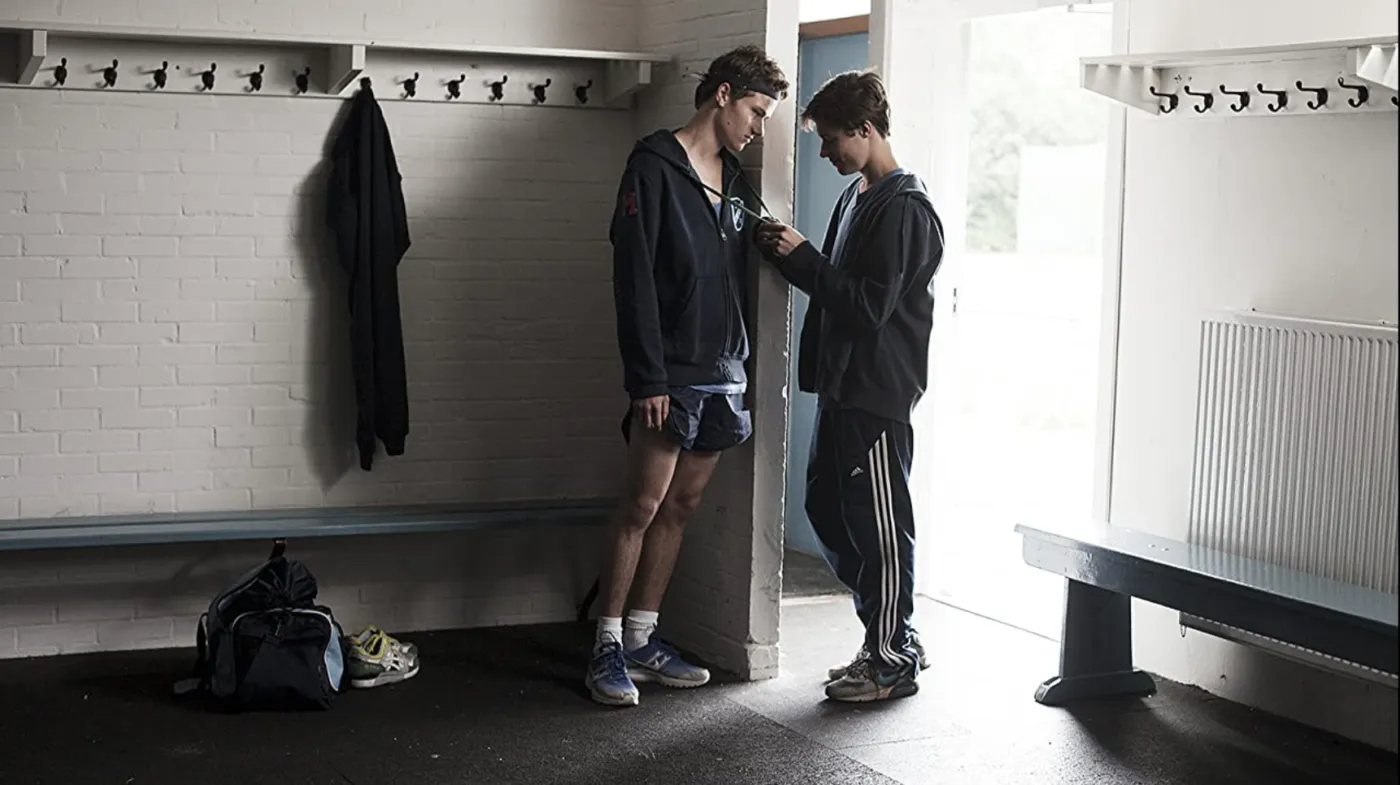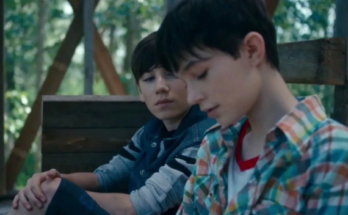𝐉𝐨𝐧𝐠𝐞𝐧𝐬 (2014) | Sieger, Marc, Victor
Jongens (2014) is a compelling coming-of-age drama that explores themes of identity, love, and self-discovery, set against the backdrop of a traditional and often challenging societal framework. Directed by Mischa Kamp, this Dutch film delves into the lives of three teenage boys—Sieger, Marc, and Victor—as they navigate their complex emotions while grappling with the complications of love, friendship, and their own personal growth.

Plot Summary: The film centers around Sieger (played by Gijs Blom), a reserved and introspective 15-year-old, who has grown up in a small, working-class town. He is a talented athlete, particularly in track and field, and is focused on competing in a national relay race. However, his life takes an unexpected turn when he forms a deep connection with Marc (played by Ko Zandvliet), a charismatic and outgoing boy with a free-spirited personality.
As Sieger spends more time with Marc, he begins to question his feelings towards him, especially as Marc makes no secret of his attraction to Sieger. As the tension between them builds, Sieger finds himself caught in a whirlwind of emotions, feeling both drawn to Marc but also conflicted by his internalized fears and insecurities about his sexuality. Meanwhile, Victor (played by Yannick Jozefzoon), Sieger’s best friend, struggles with his own issues of identity and self-acceptance.
The three boys are forced to confront their vulnerabilities and question their understanding of relationships as they navigate their feelings, desires, and societal expectations. Sieger’s journey is one of self-discovery and acceptance, learning to come to terms with who he is and how he fits into the world around him.

Artistic Analysis: Jongens is a beautifully shot and emotionally poignant film that captures the essence of adolescence, particularly the awkward and often painful process of realizing one’s sexual identity. The cinematography is understated but powerful, with intimate close-ups and naturalistic lighting that emphasize the internal struggles of the characters. The serene landscapes and quiet, reflective moments contrast with the emotional turbulence the characters experience, creating a balance that mirrors the complexities of the coming-of-age journey.
The pacing of the film is slow and deliberate, allowing the viewer to connect deeply with the characters and their emotional landscapes. There is a sense of quiet tension throughout the film, particularly in the scenes between Sieger and Marc, where their connection is palpable but also fraught with uncertainty and fear. The film allows these moments of emotional intimacy to unfold naturally, without rushing to resolve the conflict, creating an atmosphere of vulnerability that resonates with anyone who has struggled with similar feelings of confusion and self-discovery.

Performances: The performances in Jongens are exceptional, particularly from Gijs Blom as Sieger. Blom beautifully captures the quiet internal conflict of a young man coming to terms with his emotions and desires, portraying a character who is both strong and fragile. His performance is full of subtlety, conveying Sieger’s growing attraction to Marc and his fear of what it might mean for his identity. Ko Zandvliet as Marc brings a confident, yet vulnerable energy to his role, making Marc’s feelings for Sieger feel sincere and relatable. His performance provides a perfect counterbalance to Sieger’s hesitancy, offering a contrast between openness and internal struggle.
Yannick Jozefzoon as Victor also delivers a strong performance, adding depth to the dynamic of the trio. Although his character plays a more supporting role, Victor’s own journey of self-acceptance adds an important layer to the narrative, reminding us that coming to terms with one’s identity can often be a communal experience, rather than a solitary one.

Emotion: The emotional heart of Jongens lies in its exploration of love, fear, and self-acceptance. The film delves into the complicated nature of first love, particularly when it involves feelings that are often difficult to articulate or understand. The chemistry between Sieger and Marc is tender and authentic, yet fraught with the uncertainty that accompanies youthful attraction, especially when one or both individuals are unsure of their feelings or their place in the world.
The film doesn’t shy away from depicting the fear and confusion that often accompany the realization of one’s sexuality, and it handles the subject matter with a sensitivity and care that allows for an honest portrayal of the characters’ inner turmoil. There are moments of heartbreak, but also of growth and self-realization, as Sieger, Marc, and Victor each come to understand themselves and each other in new, profound ways.

Final Thoughts: Jongens is a beautiful, heartfelt film that captures the complexities of adolescence, identity, and love with honesty and depth. The film skillfully explores the confusion and beauty of discovering one’s sexual identity, while also portraying the universal themes of friendship, acceptance, and personal growth. With its strong performances, sensitive storytelling, and emotional resonance, Jongens is a standout in the coming-of-age genre, offering a raw and tender look at the trials of growing up, falling in love, and finding the courage to be true to oneself.
The film is a must-watch for those who appreciate character-driven dramas that explore the nuanced emotional landscapes of youth, identity, and relationships. Jongens reminds us that the journey of self-discovery is often messy, painful, and uncertain—but ultimately, it is also one of the most important and transformative experiences we can undergo.



